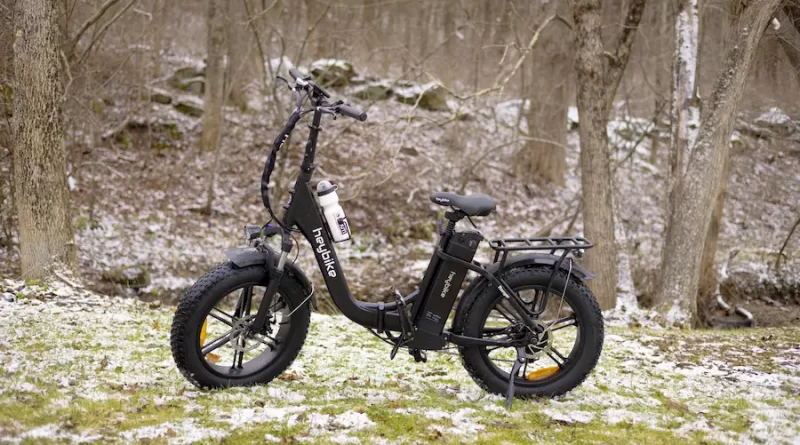Reasons why E-Bikes are Fun, Useful, & Planet-Friendly
E-bikes, a modern twist on traditional bicycles, are carving a niche in the realm of personal transportation. Their allure lies in the seamless integration of electric motors, allowing riders to cover greater distances with less effort.
This fusion of pedal power and electric assistance ushers in a new level of enjoyment. Cyclists can tackle challenging terrains and longer journeys without the exhaustion associated with conventional biking, making e-bikes a delightful choice for both leisure and exercise.
Imagine the joy of cruising through winding country roads or city streets, feeling the breeze without the strain of pedaling hard. This ease of travel encourages more people to choose biking as a fun activity, irrespective of their fitness levels.
Furthermore, e-bikes open up cycling to a broader demographic, including those who might find traditional cycling too demanding. By bridging these gaps, e-bikes create a more inclusive biking culture, filled with the joy of exploration and the thrill of speed.
The Utility of Electric Bikes: Beyond Just Transportation
The utility of an electric bike extends well beyond mere transportation. Electric bikes, commonly equipped with features like a battery, display, and motor, transform the biking experience by enabling riders to travel further with less physical exertion.
This aspect is particularly beneficial for daily commutes, where the convenience of an electric bike can significantly reduce travel time and physical fatigue.
When selecting an electric bike, such as those offered by Heybike, it’s important to consider the specific type that suits your needs. For example, models like Heybike Cityscape are ideal for urban commuting, while the Mars and Explore models are better suited for outdoor adventures.
This versatility makes electric bikes an excellent choice for a variety of activities, from running errands to exploring nature trails.
Moreover, an electric bike caters to a wider range of riders, including those who might find traditional bikes challenging due to age or disabilities. This inclusivity enhances the utility of electric bikes, making them a valuable tool for improving mobility and independence for many individuals.
E-Bikes: A Green Transportation Solution
E-bikes represent a significant step towards sustainable transportation. They offer an eco-friendly alternative to motor vehicles, reducing carbon emissions and helping to combat air pollution. This is particularly impactful in urban environments, where traffic congestion and vehicle emissions are major concerns.
By choosing an e-bike over a car for short trips, individuals can significantly reduce their carbon footprint.
The environmental benefits of e-bikes extend to their energy efficiency as well. They consume far less electricity compared to electric cars, making them a more sustainable choice for electric-powered transportation.
Additionally, the physical design of e-bikes, often lightweight and compact, further reduces the environmental impact during production and disposal.
E-Bikes: A Catalyst for Healthier Lifestyles
E-bikes not only offer a fun and efficient mode of transportation but also encourage healthier lifestyles. While they provide electric assistance, riders still engage in physical activity, which is essential for maintaining good health.
The adjustable levels of assistance allow individuals to tailor their riding experience to their fitness levels, making e-bikes suitable for both gentle exercise and more intense workouts.
The accessibility of e-bikes also promotes regular physical activity among people who might otherwise be inactive. This can have significant long-term health benefits, including improved cardiovascular health, better joint mobility, and overall enhanced physical fitness.
By making cycling more accessible and less daunting, e-bikes play a crucial role in fostering a culture of active living.
Enhancing Social Connectivity Through E-Bikes
E-bikes not only transform individual experiences but also enhance social connectivity. They serve as a bridge, bringing together people of different ages and abilities. Group rides, which might have been challenging due to varying fitness levels, have become more inclusive with e-bikes.
Friends and families can enjoy cycling together, regardless of their physical capabilities. This aspect fosters a sense of community and belonging, as more people can participate in social biking events.
Additionally, the growing popularity of e-bikes has spurred the formation of e-bike clubs and communities, creating new social networks. These groups often organize rides, share experiences, and provide support to new e-bike enthusiasts, further enriching the social fabric of cycling communities.
The inclusivity and ease of use of e-bikes thus play a crucial role in strengthening social bonds and encouraging communal activities.
E-Bikes and Urban Planning: Shaping Future Cities
The rise of e-bikes is influencing urban planning and infrastructure development. Cities around the world are recognizing the importance of accommodating e-bikes in their transportation planning. This shift includes creating more bike lanes, e-bike parking facilities, and charging stations, making cities more bike-friendly and sustainable.
Incorporating e-bikes into urban planning has the potential to reduce traffic congestion, as more people opt for this efficient mode of transport over cars for short to medium distances. This shift can lead to more livable urban spaces with less noise and air pollution.
Moreover, the adoption of e-bikes encourages city planners to prioritize green spaces and pedestrian areas, contributing to the overall health and well-being of urban residents.
The integration of e-bikes into cityscapes is not just about infrastructure; it’s also about shaping a more environmentally conscious and active urban lifestyle. As cities evolve to accommodate e-bikes, they pave the way for a future where sustainable and healthy transportation options are the norm.
Conclusion
E-bikes stand at the forefront of a transportation revolution, blending modern technology with traditional cycling to create a powerful force for positive change. Their growing popularity underscores a collective desire for more sustainable, healthy, and enjoyable modes of travel.
As e-bikes become more advanced, offering longer ranges, greater power, and enhanced features, their potential to reshape our travel habits grows exponentially. They are not just a means of transport; they are leading us toward a future where environmental responsibility and personal well-being are integrated into our daily commutes and recreational activities.

